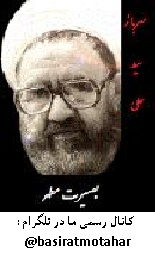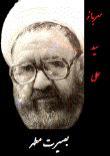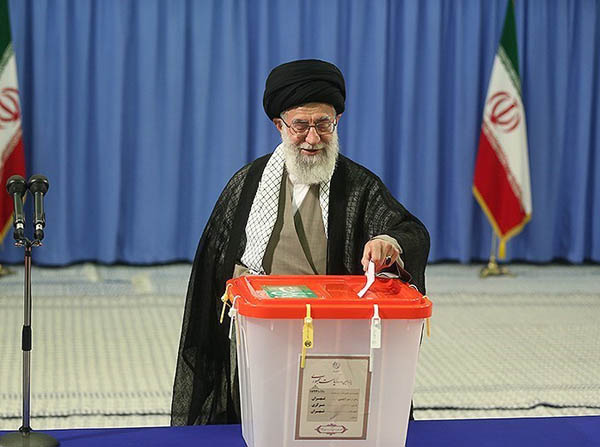On Friday Iranians will vote in two elections, the first to be held since a landmark nuclear agreement was signed last year under which international sanctions were lifted
?Why are the elections important
Although the presidential election is not due until next year, Friday’s elections for the next Majlis (the Iranian parliament) and the assembly of experts (the clerical body in charge of appointing the next supreme leader) come at a critical time. For more than a decade, conservatives dominated Iran’s main political institutions, but Hassan Rouhani’s victory in the 2013 presidential election changed that. Rouhani’s government is run by moderates, but other institutions such as parliament are still dominated by conservatives. Both of Friday’s elections are a battleground between hardliners already in power and moderate and pro-reform figures seeking a comeback.
?Are they fair
The short answer is no, but that does not mean they are not competitive. In 2013 Rouhani, an approved candidate, created an extraordinary momentum for change and was elected on a mandate considered at home and abroad to be legitimate.
All candidates have to be vetted before any election in Iran. The vetting process is carried out by the guardian council, an influential body of clerics and jurists close to the supreme leader, Ayatollah Ali Khamenei. How far the council can go to block candidates under the constitution is subject to dispute. In recent years the council has disqualified a significant number of reformist candidates. A grandson of the Islamic Republic’s founding father, Ayatollah Ruhollah Khomeini, was among those whose candidacies were not approved for the assembly election on Friday.
?How many people are running
More than 12,000 people registered as candidates for this week’s parliamentary election but more than half were disqualified, among them former MPs and many reformist figures. That left more than 6,200 candidates, including 586 women, campaigning for a place in the 290-seat parliament. In the capital, Tehran, more than 1,000 candidates are competing for just 30 seats.
Out of more than 800 Islamic theologians who stood for the 88-member assembly of experts, only 161 were approved. This initially meant that in six provinces a single candidate was standing unopposed, until officials moved candidates at the last minute to rectify the issue. No women have been allowed to stand for the assembly.
?Are reformists boycotting because of the disqualifications
No. Despite widespread disqualifications by the guardian council, there is no sign of an organised boycott. Reformists are actively campaigning and have put aside differences by forming a coalition and offering a joint list of their favourite candidates in the capital and other major cities.
In Tehran, the reformists’ coalition for the parliament is led by a former presidential candidate, Mohammad Reza Aref, an influential figure whose decision to stand down in favour of Rouhani in the 2013 presidential race was crucial to the latter’s victory. The conservative frontrunner in the capital is Gholamali Haddad-Adel.
The family of one of the opposition leaders under house arrest, Mehdi Karroubi, have indicated that he wants people to participate in the elections and support the reformists. A number of political prisoners held in Tehran’s notorious Evin prison have sent messages encouraging people not to boycott and to vote for reformists.
?What about the assembly of experts
The assembly election is usually a lacklustre event, but not this time. In theorythe assembly has the power to dismiss the supreme leader should a majority of its members so wish, but in reality Khamenei has become so powerful that the assembly’s supervisory role has diminished to a symbolic one, with members acting as his devotees.
However, the assembly is primarily tasked with appointing the next supreme leader, and due to Khamenei’s age – he is 76 – and the eight-year terms of assembly members, it is possible that the members voted in this time will choose his successor. The next leader himself may well be among those elected this week.
The reformists’ favourite candidate is a former president, Ayatollah Ali Akbar Hashemi Rafsanjani. Their aim is to block the three main ultra-conservative leaders – Ahmad Jannati, Mohammad Yazdi and Mohammad Taghi Mesbah-Yazdi – from the next assembly. Mesbah-Yazdi, an 80-year-old cleric often referred to as Ayatollah Mesbah, is a hardline politician who supported the former president Mahmoud Ahmadinejad in his initial years in office. He is famous for his critical views about Iran’s reformist movement and in particular his opposition to the presidency of Mohammad Khatami.
?Who is Rafsanjani
Rafsanjani was among the founding members of the Islamic republic, and its president from 1989 to 1997. Now 80, he is well known for his pragmatism and is one of Iran’s great political survivors. After the 1979 Islamic revolution, Rafsanjani became the first speaker of parliament, a job he kept for nine years. During the Iran-Iraq war he was Khomeini’s top representative in the supreme defence council, acting as the de facto commander-in-chief of the Iranian military. When Khomeini died in 1989, Rafsanjani played an instrumental role in the appointment of Khamenei as the current supreme leader. He is the head of the expediency council, which mediates between parliament and the guardian council. But he has lost a great deal of his power in recent years and two of his children have been jailed. He fell foul of Khamenei after supporting the opposition Green movement in the disputed 2009 presidential elections. He is now allied with the reformists.
The implications for Rouhani
These elections will also serve as a vote of confidence in Rouhani’s moderate government, which was responsible for securing the nuclear accord in spite of hardline opposition at home. The outcome of both votes will have significant consequences for Rouhani in the remaining two years of his presidency and will affect his chances of re-election in 2017. They can also change the political landscape of Iran for the next generation. Rouhani himself is a candidate for the assembly and some people think he has big ambitions for the future. He is number two on the list of candidates supported by the reformists, just under Rafsanjani.
برچسب ها : بسیج , پیشنهاد , iran , دانلود پروژه ی امار , دانلود پروژه آمار , دانلود رایگان , دانلود رایگان پروژه ی آمار , دانلود رایگان آمار , چند دستور العمل و موعظه از حضرت آیت الله شوشتری ( دام ظلّه ) , چند , دستور العمل , و , موعظه , از حضرت آیت الله شوشتری , down , estekhdami , hsjonhld , down load , دانلود سوالات استخدامی , دانلود استخدامی , دانلودرایگان , دانلود رایگان ن , http://telegram.me/basiratmotahar , http:// , telegram , .me/ , http: , تلگرام , کانال , //telegram.me , /basiratmotahar , lpf,f , محبوب ترین کانال تلگرام , محبوبیت تلگرام , محبوب تلگرام , افراد تلگرام , تلگرام کانال , کانال های تلگرام , تل گرام , tellgram , te , freedownload , free download , نمونه سوالات استخدامی , دانلود نمونه سوالات , شهادت , سجاد , زین العابدین , سنگ , شهادت امام , امام سجاد , امام زین العابدین , شهادت امام سجاد (ع) , شهادت امام زین العابدین , hvfudk , arbaeen , حماسه اربعین , پیاده روی اربعین , السلام علی الحسین , بصیرت اربعین , اربع , حماسه عاشورایی اربعین , عاشورااربع , 40th of hoseyn , 40 , الامام الحسین , حسین , کربلا , کربلا معلی , معلی , حسین , امام حسین (ع) , (ع) , کشتی حسین , دلم حسین , دلم تنگ , تنگ , بصیرت حسینی , حسین بصیرت , بصیرت کر , ;HKHG , KANAL , کانال تلگرام , vote , rafsanjani , roohani , rouhani , assembly , experts , expert , running , fair , election , elections , important , irans elections , e ,



















 توسط :
توسط :